
SUPPORT - Final Video
For the last five years, the SUPPORT project, funded by the Interreg Europe program, has helped deepen the knowledge on the issue of energy efficiency at the re...
SUPPORT tackles the difficulties encountered by many cities and towns of partner regions in the implementation of sustainable energy policies.
Lack of funding, obstacles in making financial strategies, scarce integration of energy policies, poor involvement of private sector: these are why, nevertheless EU support for local authorities, since the adoption of the Climate and Energy Package in the framework of the Covenant of Mayors, local plans in Energy Efficiency didn’t produce effective results, particularly in the administrations’ ownbuilding stock.
SUPPORT aims to improve the coordination and performance of policy instruments to implement national and regional energy efficiency programmes at local level, through:
To achieve these aims, SUPPORT combines different kinds of interregional learning activities, to foster exchange among partners and between partners and stakeholders
Partners will work both separately and jointly (and with the collaboration of key regional stakeholders and the technical support of the advisory partner) to analyze their regional backgrounds in the field of energy policies, identify and transfer good practices, and define Action Plans to improve the performance of their energy policy instruments and the spending of Structural Funds in their regions, also through a more effective implementation of local plans.
€1,842,644.00
Low-carbon economy
The overall objective of SUPPORT is improving the operational quality of the ERDF funds directed towards local administrations for integrated strategies for CO2 abatement, with particular attention to the reduction of the implementation gap of energy efficiency measures, and empowering Local Authorities to make optimal use of ERDF funds for integrated sustainable energy strategies and actions, e.g. in the context of voluntary commitments, like the Covenant of Mayors, involving local stakeholders and private subjects in the implementation of energy-related actions and projects.
The policy instrument is the most important tool to promote energy efficiency in the public sector in Croatia. Targeted SO contributes to the achievement of the obligation stemming from Directive 2012/27/EU, to renovate (in terms of EE) 3% of the total floor area of public buildings per year. Its contribution to the goals set by the National programme for the EE renovation of public buildings and 3rd National Energy Efficiency Action Plan has significant potentials for energy and costs savings. Also, the public sector is expected to take an exemplary role in providing investments and behavior change that will serve as a model for investments in other types of buildings. Challenge arises in the implementation part: in fact, the gap between the 3rd NEEAP and action on the ground is considerable. A high number of investments is planned to achieve just minimal requirements (30% in efficiency improvements). Because of inadequate planning and lack of knowledge, investments leading to better performances (40-60% and deep retrofit) are put aside although the period of economic return is shorter and CO2 emissions lower. Local and regional authorities lack expertise to envisage proper objectives and allocation of financial resources. There is a need of an integrated approach to energy planning, integrating technical, environmental, economic and social criteria, and enabling the tailoring of planned measures to the peculiar features of each territory.
Action 4.1.1 of the Regional 2014-2020 ERDF Operational Programme aims to promote energy retrofitting of public buildings via energy audits as a point of departure for improving the performance through thermal insulation and efficient technologies, district heating, co-generation, tri-generation, remote control and management systems and local production of energy. The Region Lazio is aiming at retrofitting 600 public buildings annually reducing energy consumption by 10.000 MWh and CO2 emissions by 6000 tons. The public housing stock of the Metropolitan City of Rome (MCR) amounts to 400 buildings of which 330 are secondary school complexes. MCR has set itself the objective to save 25% of the school’s annual energy costs which amounts to more than 12 million euro. In order to achieve these strategic objectives the conditions must be improved for implementing the local and provincial energy and climate plans, in particular the SEAPs of approximately 80 cities and towns that cover 85% of the inhabitants of the Region and the SEAP of the Metropolitan City itself. In order to achieve the strategic targets of above the Action 4.1.1 has to be rendered accessible for the stakeholders, primarily the local administrations, the Metropolitan City and the Provinces to develop the full potentialities and a long-term, consistent use of the ERDF funds.
The Government of Malta launched EcoGozo in 2008 with the intention of triggering a long-term vision and a commitment of implementing a strategy to achieve higher levels of sustainability in four main priority areas: economy; environment; society; culture and identity. The Action Plan, intended to be a short-term strategy to achieve higher levels of sustainability in the Region of Gozo, encompasses a wide range of energy-related and environmental issues that the island faces, and proposes actions specifically aimed at reducing the pressure on the environment and shifting towards low-carbon economy. The methodology is based on an open collaboration with the regional and local authorities to boost measures and funded projects with the aim to effectively tackle and manage all the sensible topics, including: green energy sources, energy efficiency measures, organic agriculture, eco-tourism and cultural heritage, sustainable management of water, waste and natural resources, sustainable transport, etc. The vision of EcoGozo has proven to have put into a coherent framework the crucial elements of sustainable development of the region and continues to be valid. However, the implementation of the measures and actions proposed in the policy instrument is progressing too slowly. SUPPORT will need to give a decisive input for closing this gap quicker.
The policy instrument has the following objectives:
- fostering energy efficiency in all sectors in the county;
- increasing the use of energy from local RES;
- ensuring a performant energy management through capacity building of Local Authorities in this domain.
According to the Energy Masterplan, Local Authorities are supported in the elaboration and implementation of SEAPs (in the framework of the Covenant of Mayors).
The main domains of this instrument are strictly related to different Axis of the Regional Operational Programme 20142020:
- Axis 3: "Supporting the improvement of energy efficiency in public buildings";
- Axis4: "Supporting sustainable urban development". The main gaps to be addressed in the implementation of the policy instrument regard: the low capacity of Local Authorities in designing and implementing local energy policies; the difficulty in accessing needed funds for the implementation of SEAPs.
The policy instrument addressed is ambitious in some parts but weak in other. The policy instrument has a rather general description of climate actions, but needs to link up in a more precise way to the detailed actions that can be found in the SEAPs of local governments in order to be able to give targeted support via the Action Plan for the implementation of the local plans. By improving the regional document and include the local ambitions in the regional policy document –the local authorities will become even more motivated to strengthen their local climate work.
The policy instrument has been used and improved during 15 years. Focus is now changing from larger environmental threats for example industry towards the daily agenda. How to we act? How do we transport our self and goods? How and what do we consume? By this change the work structure has been improved, but there is lack of motivation among the public sector, the staff working with climate strategies and planning are only a few and they are often operating far away from the real decision makers.
The instrument follows the strategy devised by the Junta de Andalusia for the period 2014-2020, aiming at contributing to smart, sustainable growth whilst achieving social, territorial and economic cohesion during the programming period. It defines a set of priorities aligned with those of the Europe 2020 Strategy, by means of Thematic Objectives included in 2014-2020 Spain’s Association Agreement. FAMP, like other SUPPORT partners, addresses the T.O.4 "To promote the shift towards a low carbon economy in all sectors", more specifically the PI.4.3 "To support to energy efficiency and use of renewable energies in public infrastructures and equipment, including public buildings and housing", LEA 4.4 -"Rehabilitation actions aimed at the promotion of measures related to energy efficiency and savings in buildings, housing and equipment in Andalusia, both of public and private ownership". The reason for the selection of this Priority Action lies in the need to address the general low efficiency of the energy system in Andalusia, where the implementation of energy efficiency measures - also in spite of the strong presence of the Covenant of Mayors in Andalusia, with 535 signatories amongst cities and towns - lags behind. ERDF funds will have a central role in improving this situation and SUPPORT will provide FAMP and the Ministry of Economy and Knowledge of the Region with operative knowledge on how to optimally use these funds to implement EE measures in local administrations.
Priority Axis 3 "Energy and Resource Efficiency" will provide targeted support for the transition to a low carbon economy in all sectors of production (Thematic Objective 4) and promote efficient use of resources (Thematic Objective 6). Promoting energy efficiency and resource efficiency in enterprises, especially those from the manufacturing industry, is a important and imperative process since these companies contribute in the greatest extent to the low productivity of resources and the low energy efficiency of the economy. The need for modernisation of the Bulgarian service and industry sector is immense. The policy instrument responds adequately to the priorities and needs for promoting a low carbon economy and society. It is being addressed because it is at the center of the mission of the partner. The improvement will mainly have to do with a wide-spread and efficient application. SUPPORT will provide the occasion for a better understanding of how to raise awareness and empower stakeholders to access the funds available and use them in the most effective and efficient manner.
Thematic Objective 04: Supporting the transition towards an economy of low emissions of carbon dioxide in all sectors
Investment Priority 4c: Supporting the energy efficiency of smart energy management and the use of renewable energy sources in public infrastructure including public buildings and the housing sector
Specific Objective 4c1: Increasing the energy efficiency and the development of renewable energy sources in public buildings and public infrastructure
The Central Macedonia OP foresees annual energy savings of 160 ktoe. Energy efficiency in buildings and particularly in public buildings constitutes an important part of this effort. The potential for this is represented mainly through the actions local governments foresee in their Energy Plans, often SEAPs elaborated in the context of the Covenant of Mayors (CoM). The challenge is to render the policy instrument accessible to local governments. The improvements that will come out of the interregional collaboration will be used to support the public authorities in acceding the ERDF funds for implementing their energy efficiency actions contained in their local energy plans.
The policy instrument chosen is the regional OP for ERDF, and the focal point of the project is Priority Axis 3 “Fostering the shift towards CO2 emissions reduction in all sectors of the economy”, IP4c “Promoting policies to reduce CO2 emissions for all areas, especially urban areas“, Specific Target 6 “Development and implementation of integrated strategies to reduce CO2 emissions in municipalities”. In order to achieve the SP6, the implementation of projects, which are prioritized through strategic concepts, should be encouraged and co-funded. The support also includes the establishment of new advisory and information services as well as increasing the regional municipal and public private information sharing. The identified OP priorities should be used to reach on local level the targets of the Climate Protection Strategy of Rhineland Palatinate (reducing GHG emissions by 40% until 2020 compared to the 1990 base value and by 90% until 2050 by fostering energy efficiency and the use of RES, and by promoting capacity building in energy management, especially in the public sector) and are to be aligned target-oriented.
Local climate protection strategies or energy action plans, like SEAPs, are the basis to ensure long-term, consistent approaches and are a requirement to access ERDF funding. Municipalities and stakeholders should be supported in the use of ERDF to ensure the achievement of the Climate Action Strategy targets and of SP6.

For the last five years, the SUPPORT project, funded by the Interreg Europe program, has helped deepen the knowledge on the issue of energy efficiency at the re...
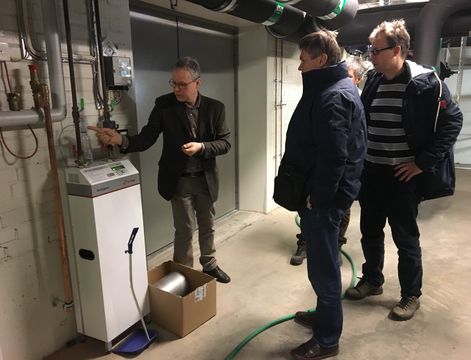
The process of improving the policy document “Action plan for regional environmental objectives in the county of Kalmar 2014-2020” started early this year. ...
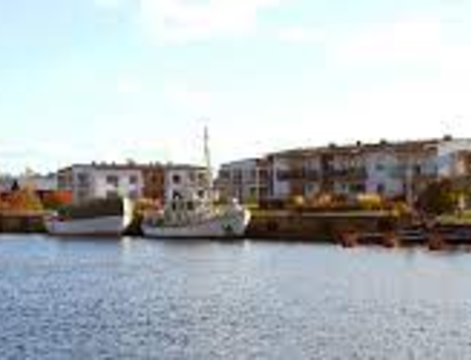
The actions in the regional action plan in Southeast Sweden is setting footprints in the local energy efficiency work. During last year the company invested in ...
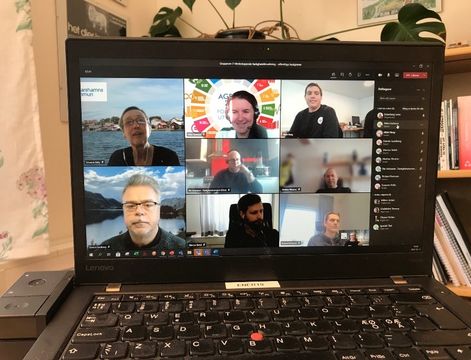
In February, the regional energy agency for Southeast Sweden organized an online workshop and webinar for the public property managers in the region. At the wor...
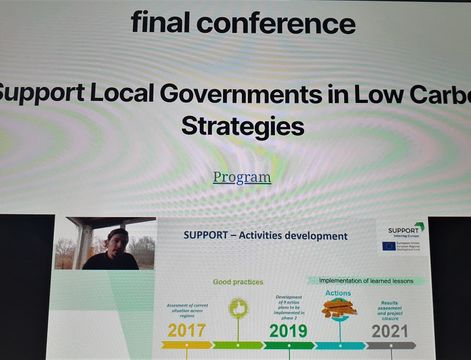
The final conference of the interreg Support project was held last 2nd february.
The conference due to the pandemic, was held online with 91 registered partici...
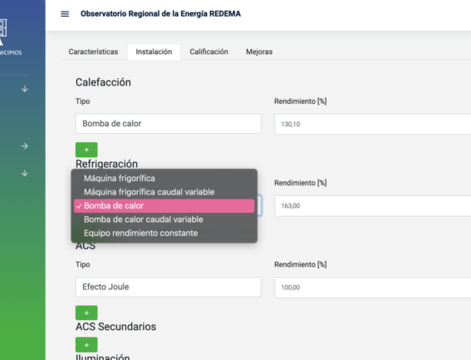
The testing phase of the REDEMA Energy Observatory online platform continues on and will soon be finalised.At the Federation of Towns and Provinces of Andalusia...

An extensive process to change the policy document in Kalmar County, Sweden has started. The policy document addressed is the action plan for the environmental ...
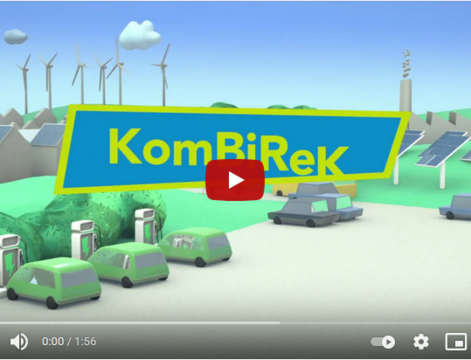
Many municipalities want to do more for climate protection and are looking for effective climate protection measures. However, only those who cleanly balance th...
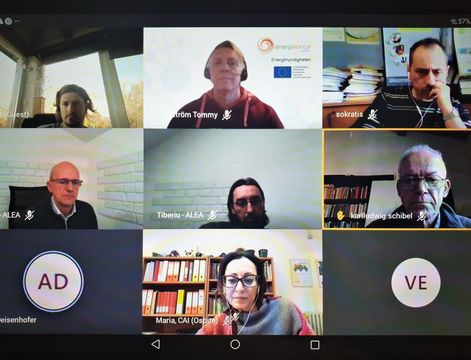
Dear Madam/Sir,the Interreg Europe "SUPPORT" (Support Local Governments in Low Carbon Strategies) project will end in June 2021. All partners are at work for th...
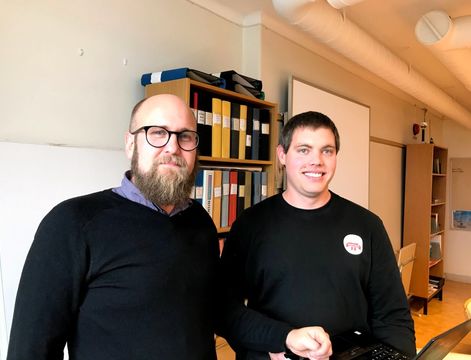
The municipality of Mönsterås has start working of active sustainable propoerty management, meaning looking into preventive maintenance to avoid problems in t...